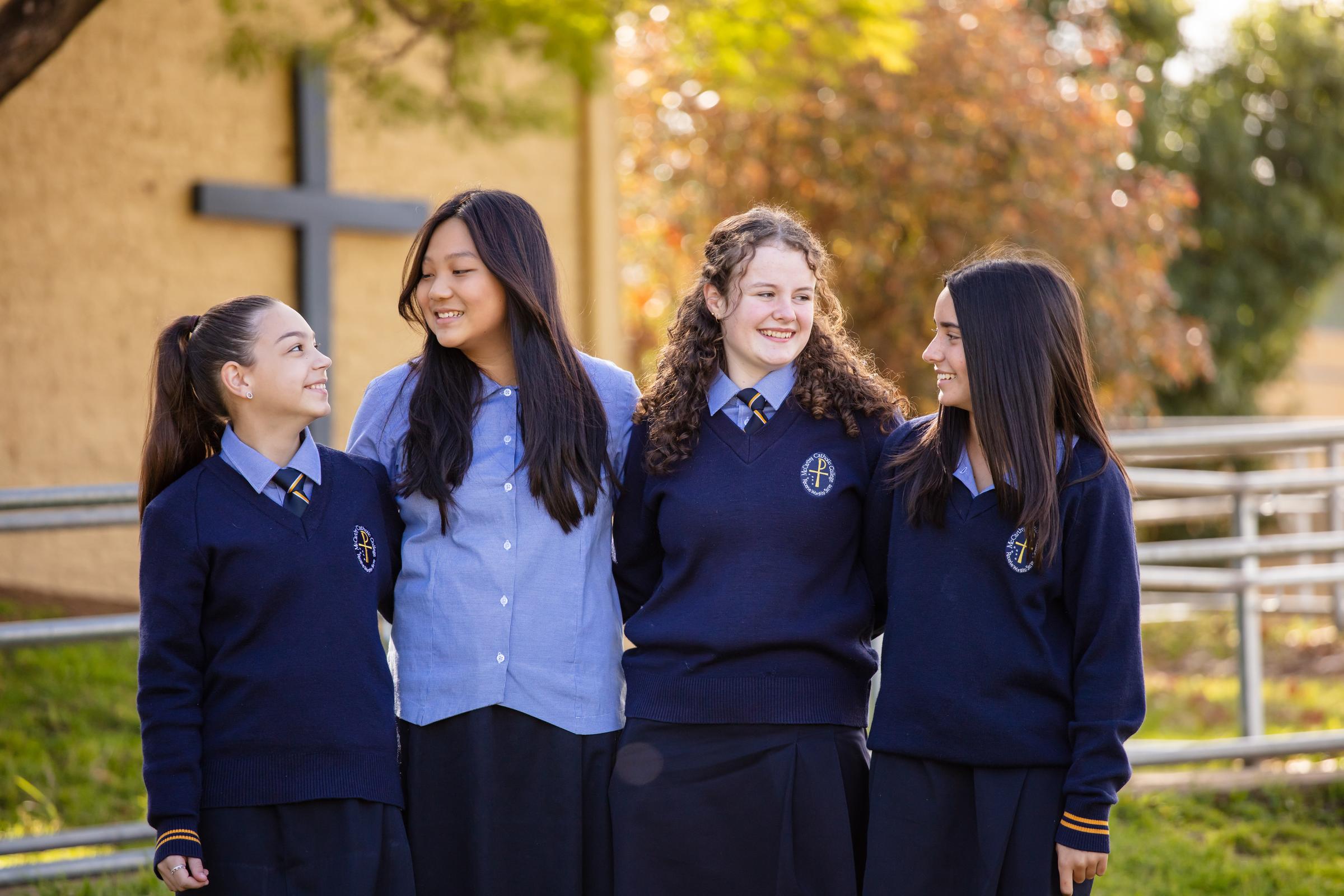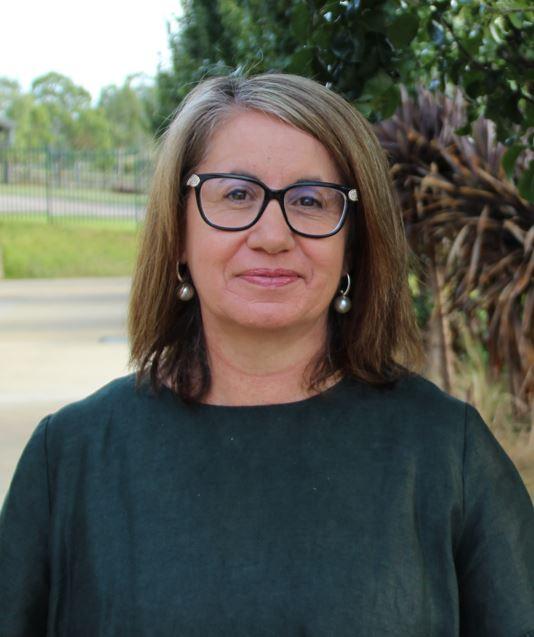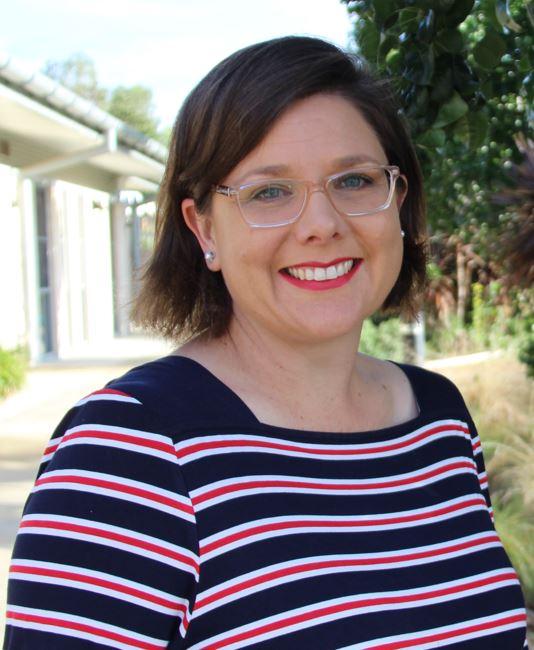Curriculum

2021 has again been a year of many varied learning experiences which have tested more than the curriculum content. We would like to take this opportunity to thank staff, students and families for their commitment and engagement across the year and for embracing the changes with a positive can-do attitude. Blended learning that incorporates explicit teaching alongside the gradual and supported ‘release’ of independent learners is the new normal and has enriched learning experiences for many.
Congratulations to Mrs Katie Buckman who has recently achieved NESA proficiency, an important milestone for all Early Career teachers.
Semester 2 reports have been released through COMPASS.
Making the Most of the End of Year School Report
1. Read your child’s report with your child. This immediately indicates openness, and provides direct encouragement and support to your child. Wherever there are positives, in either comments, grades, effort and so on, point them out to your child first. Most students will have areas to commend and should be acknowledged by the parent.
2. The report should be viewed as a vehicle to move forward, and not be perceived as a final judgment of a child’s ability - because it is not. It’s a “screenshot” and not the whole story. It is important that students know they have the ability to modify and change their work ethic or study strategies, and they can improve. Reinforcing that the report is an opportunity to highlight strengths and weaknesses, which will happen throughout their working life through appraisal or performance reviews, can help the student develop goals for next year.
3. Compare the Semester 2 report to the Semester 1 report and last year’s report. This can be useful to identify specific subject areas where there has been an improvement or a decline. If students have improved, celebrate this achievement. If not, discuss why this may be the case. For example, Semester 1 report grades may have been based on assignments and not exams. This could flag that exams were either not fully prepared for and study skills should be reviewed, or your child needs exam practice as they are a very different mode to demonstrate knowledge, or perhaps new concepts were introduced in Semester 2 and these could be weaknesses to work on!
4. Don’t just look at grades, also focus on learning habits. A child’s performance is not measured solely by grades. Not every child will receive an A or B, in fact the average child would mostly like to achieve a C grade. Learning habits however can reflect the teacher’s perspective on how hard your child worked, their commitment to fulfil homework, assignments and contribution in class. A child who achieved a C grade, yet achieved highly proficient in their learning habits should be congratulated. Again, as the report should be viewed as a discussion and evaluation, if the learning habits are lower, ask your child why this might be the case, and make a note of this to form one of the goals for next year.
5. Teachers’ comments. The teachers’ comments are valuable when discussing the report with your child. Ask him or her if they agree with the comment, or why, if they don’t. Encourage your child to consider the teachers’ comments. Obviously if there is a consistent thread from multiple teachers, this needs to be addressed. For example, if many teachers comment on your child’s lack of concentration, or need to focus on answering the question, then the comments suggest a specific area of weakness. Similarly, if multiple comments commend your child on commitment, determination and diligence, it suggests your child’s attitude to school is solid.
6. Talk to your child about the report, and listen. Help your child not to blame someone or something that resulted in a disappointing report. Blame does not lead to action. If there are extenuating circumstances for a disappointing report (such as a difficult family situation like parents separating, or relocation or demanding co-curricular activities etc), acknowledge these may have affected your child’s focus and give understanding. However help your child accept that they perhaps did not put in the effort, or had not established an effective revision program, or had not given the required commitment. Asking your child what they could do next year to improve or maintain excellence is a good start. Again, it would be worthwhile jotting down your child’s comments to establish goals. Reinforcing that a yearly report is a vehicle to move forward is vital.
7. Establish goals for next year and consider a holiday review program (even if only 1 hour a week). The report can, and should, be read as an instrument to create goals for next year, and possibly plan a holiday review program. As students in December typically focus on the long summer holidays, freedom and unstructured days, it’s natural for school work to wane. However, now is the time to create goals for next year, whilst the academic year remains in their recent memory. It is more difficult to establish goals in February. Goals are best determined by the child, yet parental input after discussing a yearly report is prudent and can provide direction. The goals should be in response to you and your child’s discussion of the report, and teacher recommendations. Some goals could be:
- Focus on reading the question in assignments/exams carefully to ensure the question is answered.
- Ensure I make summary notes when I finish each topic.
- Do at least 30 minutes reviewing what I learned at school each day, in addition to homework.
- Ask the teacher if I don’t understand a concept.
- For example, if Maths is a weakness, spend 1 hour a week doing extra Maths practice.
When the goals are listed, put them in a prominent place – fridge, bedroom wall, notice board etc.
It would also be prudent to develop a holiday review program if there are specific subjects or areas of subjects that are weak. This does not need to be extensive, however regular practice of specific subjects that will be required for cumulative learning next year can make an enormous difference.
Examples of subjects where knowledge learned this year would be assumed knowledge for next year can include Maths, Science, English and Languages – as well as many others!
Holiday review programs can easily be incorporated into your child’s vacation plans. For example, if your child sees a movie, they could write a review, or analyse the film techniques. If your child reads a newspaper or magazine or internet site, they could write a short paragraph about bias, purpose, persuasive techniques etc.
And lastly, if you are very concerned about your child’s report, you should contact the school.
Learn more about how to achieve your academic best by working through the units on www.studyskillshandbook.com.au. Our school’s access details are:
Username: mccarthycc
Password: 77success
ATAR and HSC results will be released in late January. Student timetables for 2022 will be available through COMPASS as students return to face to face classes at the college.
We wish everyone a Merry Christmas and a safe and restful holiday break.
Mrs Sally Sparke - Assistant Principal - Curriculum &
Mrs Briony Martin - Leader of Pedagogy


